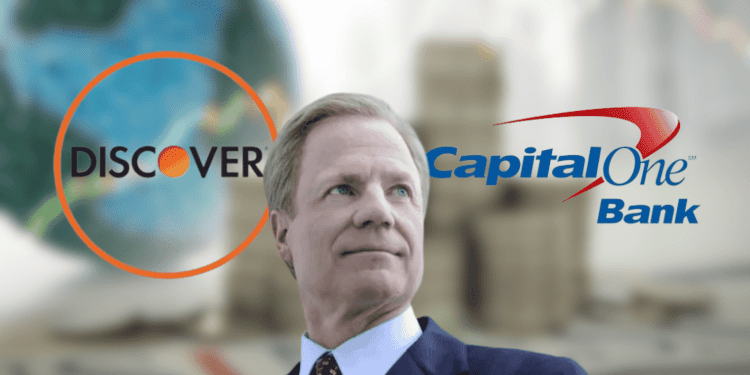- Capital One is acquiring Discover Financial for $35.3 billion to become the largest credit card issuer and obtain Discover’s payment network
- The strategy is to own a global payments network to boost merchant services, build loyalty programs, and capture more revenue amid fintech disruption
- Regulatory approval is uncertain as critics argue the merger could harm consumers and small businesses, but Capital One touts it as increasing competition
Capital One‘s acquisition of Discover Financial is a strategic move to protect itself against rising fintech and regulatory threats. The combined company will be the largest credit card issuer and have its own payment network.
The Deal
Capital One will pay $35.3 billion for Discover. The deal enables Capital One to surpass JPMorgan as the largest credit card lender and solidifies its position as the #3 card network by purchase volume. It also adds Discover’s deposits and payment network.
The Strategy
CEO Richard Fairbank views owning a global payments network as key to Capital One’s future. The Discover network provides Capital One with its own “rails” to move money between consumers and merchants while collecting fees, rather than relying solely on Visa and Mastercard.
By integrating Discover’s network, Capital One aims to boost its merchant services, build loyalty programs, and capture more revenue. This closed-loop ecosystem could help fend off fintech and big tech competitors.
Regulatory Outlook
It’s uncertain if regulators will approve the merger. Critics argue it could harm consumers and small businesses. But Capital One touts the deal as strengthening competition among payment networks.
Conclusion
The Discover acquisition is a bold chess move by Fairbank to position Capital One for the digital payments future. Owning a network gives Capital One more control amid industry disruption. But the deal’s approval is far from certain.














